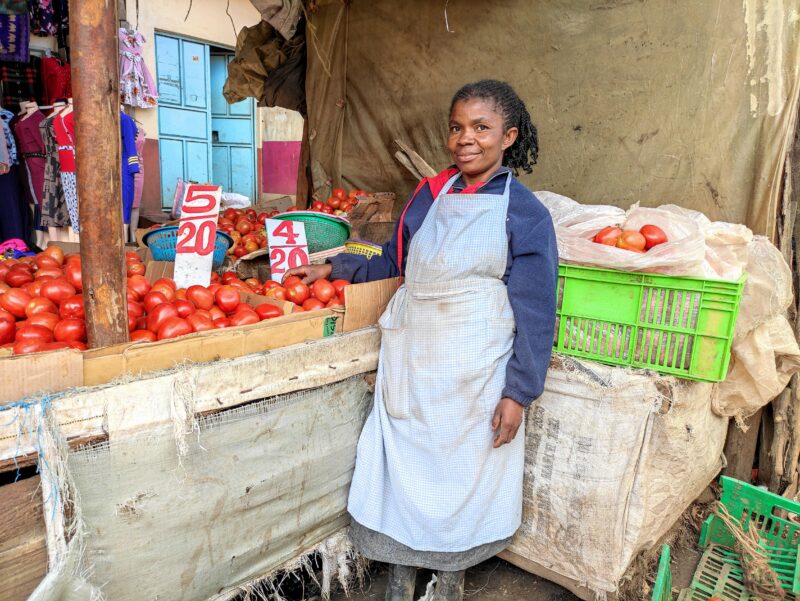Access to financial services, like bank accounts, helps refugees to cope with shocks, reduces exposure to risk, and stimulates local economies. This enables refugees to become self-reliant and productive members of society who contribute towards economic development. Access to bank accounts not only gives refugees a safe place to keep their money, but it also fosters a savings culture and allows them to separate business operating capital from personal expenditure. Most importantly, a bank history serves as a foundation upon which refugees can build credit and eventually access lines of credit for business growth and development.
Since 2019, RefugePoint has been collaborating with Postbank, a savings bank, to enable our clients in Nairobi to open bank accounts. RefugePoint is also now able to deposit rent assistance, emergency aid, and small business grants directly into clients’ accounts, rather than relying solely on cash transactions or mobile money solutions like Mpesa (a mobile money transfer service in Kenya). Access to bank accounts saves both time and money for RefugePoint and our clients. Clients do not need to physically present in the office to receive payments, saving time as well as bus fare for the visits.
Balolwa is a RefugePoint client who has benefited from access to financial services. In 2014, Balolwa fled to Kenya due to insecurity in her home, the Democratic Republic of Congo. In February 2020, she received a grant of $300 after completing business skills training. Because we helped Balolwa to start a bank account, her grant money was wired directly to the account. She used this grant to expand her vegetable business by purchasing more tomatoes, garlic, and onions. Balolwa’s business was doing well, especially during the first few months of the COVID-19 pandemic. Unfortunately, in May 2020, all of Balolwa’s stock was stolen in the market. However, because Balolwa had savings in her bank account, she was able to restart her business. She also used some of her savings to build a strong lockable storage box to prevent future incidents of theft.
“Having a bank account allows me to have the discipline to put money aside for future use. I think that my life in the future will be much better than it used to be” Balolwa told us.
Refugees like Balolwa are often excluded from setting up bank accounts due to the fact that many of them lack the necessary identification documentation. Additionally, refugee entrepreneurs face difficulties accessing capital to start or expand a business. Since the majority of refugees do not have tangible assets to serve as collateral, lenders consider them to be high-risk. Refugees may also be more likely to use informal financial structures due to low literacy levels, informational materials being unavailable in their language, fear of discrimination, and cultural beliefs and norms related to debt and interest. As a result, refugees often end up relying on informal structures for both personal savings and lending.
These informal structures tend to be risky and exploitative. Loan sharks tend to offer higher interest rates than formal lending structures. Some refugees rely on local chamas (self help groups) and associations for loans. To access these, refugees must be confident enough in their business to ensure they can repay the loans within a specified period of time. Others rely on their fellow refugees and community members to lend them soft loans, which may not be enough to fully satisfy their needs.
Since helping refugee clients to establish bank accounts, RefugePoint has seen fewer incidences of payments being diverted because of incorrect information or clients relying on neighbors and friends who are registered for Mpesa services. Clients’ access to secure bank accounts is especially crucial during the COVID-19 pandemic since the use of cash is highly discouraged. Bank accounts enable clients to have a secure financial platform where they can save and access their money using their debit cards at select ATM outlets and with countrywide agents.
